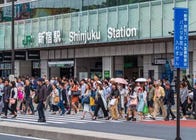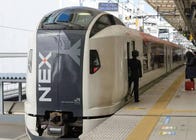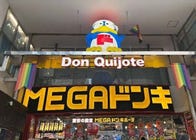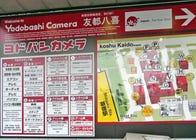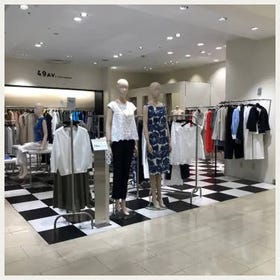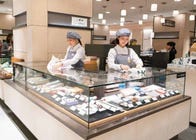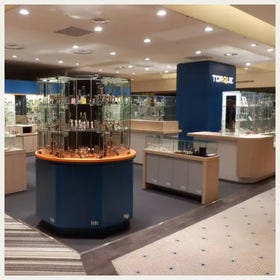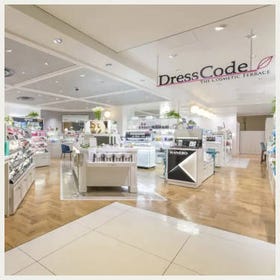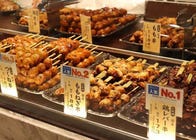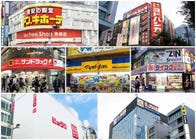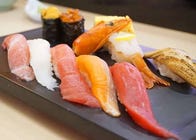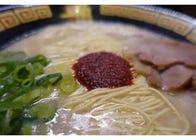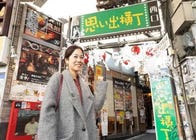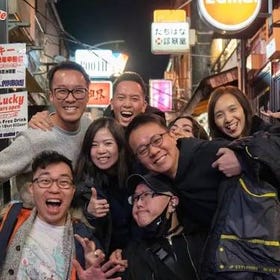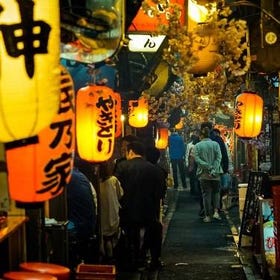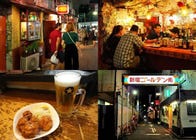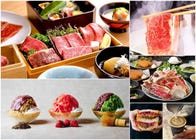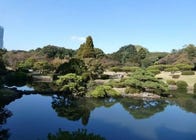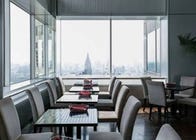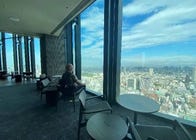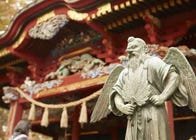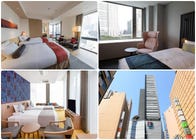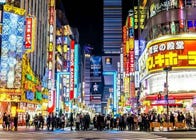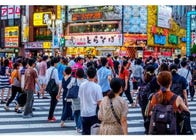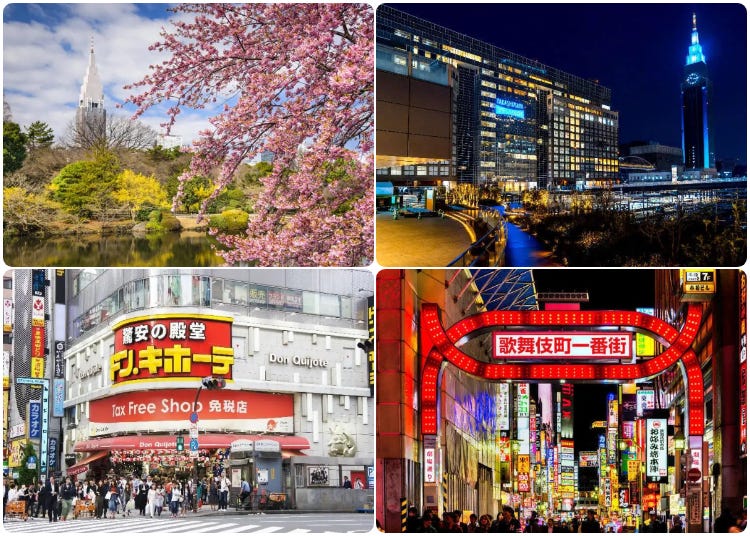
Shinjuku is a major neighborhood of Tokyo that offers a wide range of attractions that you definitely wouldn't want to miss. Whether you want to experience the lively atmosphere of Kabukicho, take a relaxing walk through the Shinjuku Gyoen National Garden, go on a shopping spree at Don Quijote or BicCamera, or indulge in all-you-can-eat yakiniku, Shinjuku has something for everyone. From dining and entertainment to sightseeing, this place has it all.
Here, we have curated a list of the most popular attractions in Shinjuku, covering shopping, dining, and sightseeing. We will also provide you with transportation information and recommendations for day trips by bus. This guide is a one-stop destination for all your must-do, must-see, and must-eat experiences in Shinjuku. So, let's get ready to explore this vibrant area!
Main image from previous articles
- Table of Contents
-
- Shinjuku - Fulfilling All Your Needs: Shopping, Dining, Transportation, and More
- 10 Must-Visit Places for a Shinjuku Shopping Spree
- Shinjuku's Culinary Delights: 5 Recommended Dining Spots
- Top 5 Must-Visit Attractions in Shinjuku
- Make the Most of Shinjuku's Transportation Hub: Recommended Bus Trips Departing from Shinjuku
- Annual Must-Attend Events in the Shinjuku Area
- Full of Surprises, Shinjuku Awaits Your Exploration!
Shinjuku - Fulfilling All Your Needs: Shopping, Dining, Transportation, and More
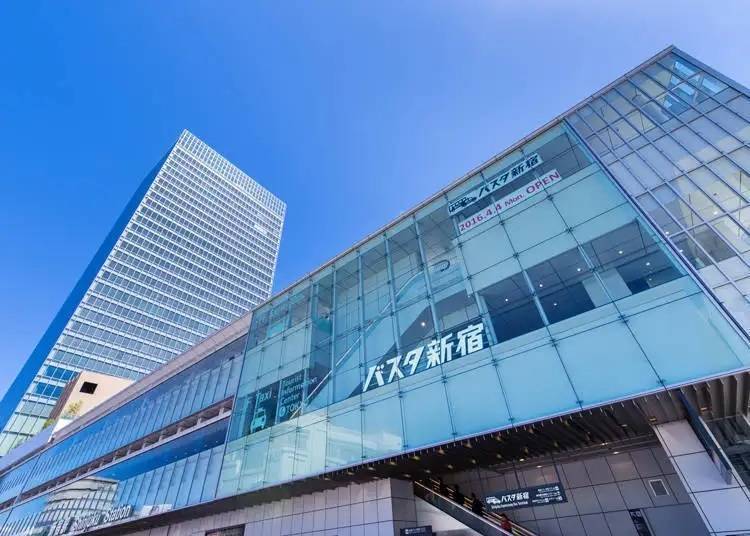
Shinjuku is one of the busiest and liveliest places in Tokyo. In fact, Shinjuku Station has over 200 exits, opening out to different aspects of the neighborhood! This area is a hub of activity, with major department stores, large electronics retailers, drugstores, and top-notch dining establishments converging around the station area.
In addition to its bustling commercial areas, Shinjuku boasts several attractions. The enticing <@nightlife district of Kabukicho|a=a0000148@> is located here. Nearby, one can find the famous cherry blossom viewing spot, Shinjuku Gyoen. The high-rise observatory of the Tokyo Metropolitan Government Building offers panoramic views of the city. For those looking to stay in the area, Shinjuku's accommodation options are countless, ensuring visitors have everything they need and more.
Shinjuku's transportation infrastructure is notably comprehensive. The district is serviced by JR train lines, Tokyo Metro, and Toei Subway, making it incredibly convenient for traveling to and from various parts of Tokyo.
For those looking to explore nearby areas, the Keio Electric Railway, Odakyu Electric Railway, and Seibu Railway offer connections to places like Mount Takao, Kawagoe, and Chichibu.
Lastly, for long-distance travelers, Shinjuku houses the BUSTA Shinjuku highway bus terminal. This terminal provides direct bus services to many destinations across Japan, including popular spots like Mount Fuji and Lake Kawaguchi, and the Disney Resort.
Additionally, the Narita Express (N'EX), a direct train service connecting Narita Airport to Tokyo's heart, also stops at Shinjuku Station. For those looking to save a bit more, you can also opt for convenient alternatives like the Keisei Skyliner, Keisei Main Line, or airport buses.
10 Must-Visit Places for a Shinjuku Shopping Spree
1. Shop 'Til You Drop at Don Quijote
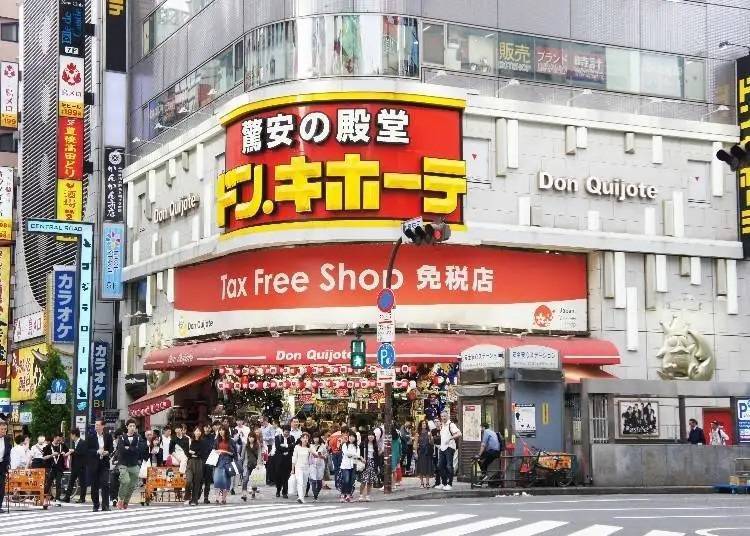
If you're short on time during your visit to Shinjuku, a must-visit spot is Don Quijote! It is a popular Japanese discount retail chain that offers an extensive range of products. Their selection includes electronics, international brands, clothing, footwear, snacks, instant noodles, and much more.
In Shinjuku, you can find three Don Quijote stores: the Kabukicho Store, the Shinjuku Tonanguchi Store, and the Shinjuku Store close to the Okubo area. While the Kabukicho Store is the most convenient for tourists, it can get crowded. The Tonanguchi store has a relatively less busy atmosphere and a more spacious shopping area, providing a more comfortable shopping experience. The Shinjuku Store is a bit farther from Shinjuku Station, but it offers a spacious layout and minimal need for navigating stairs, making it suitable for those with luggage or strollers.
All three Don Quijote stores in Shinjuku operate 24/7 and have multilingual staff. The great news is that they are also duty-free! If you spend over 10,000 yen (tax not included) at Don Quijote, you can enjoy a 10% duty-free discount plus an additional 5% off by clicking the coupon below and presenting it during checkout.
Please note that this offer is exclusively available for overseas tourists entering Japan with a tourist visa.
2. Buy the Latest Electronics and Top-Rated Cosmetics at BicCamera
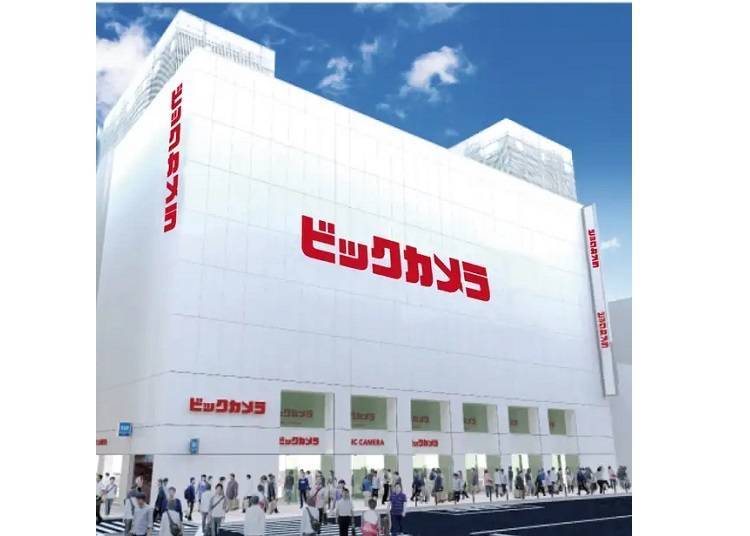
BicCamera is a leading electronics retailer in Japan with three primary outlets in Shinjuku. The Shinjuku Nishiguchi Store, situated inside the HALC Building of the Odakyu Department Store, is nearest to JR Shinjuku Station.
A short walk from Shinjuku Station's east exit leads to the BicCamera Shinjuku East Store, which has become a tourist favorite. Previously dubbed "BICQLO" and co-located with UNIQLO, it became a full BicCamera store in June 2022 after UNIQLO closed its 1st to 3rd-floor outlets.
For the latest Japanese gadgets and a wide range of cosmetics and skincare, BicCamera is the go-to. They also offer items popular among tourists, such as snacks, toys, and Thermos flasks, in a spacious and family-friendly environment. With professional and multilingual staff, international shoppers can benefit from duty-free purchases and an additional 3% to 7% discount (rates might differ) by using the coupon provided below.
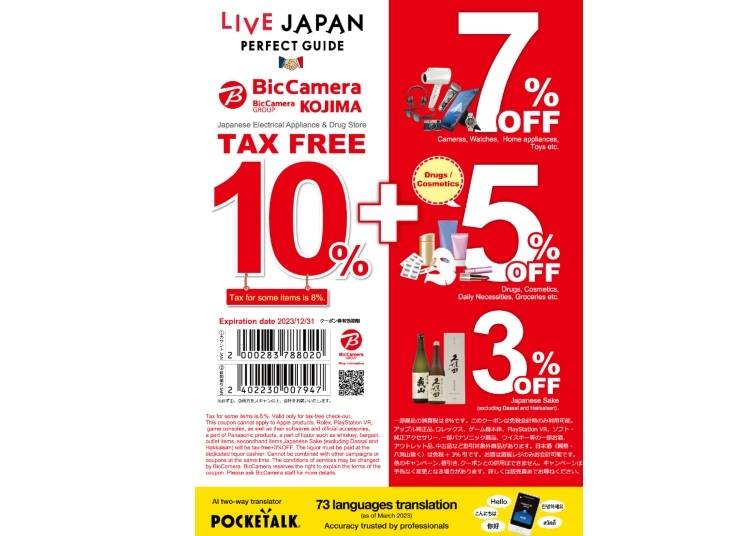
3. The Largest Electronics Retailer in Shinjuku West: Yodobashi Camera
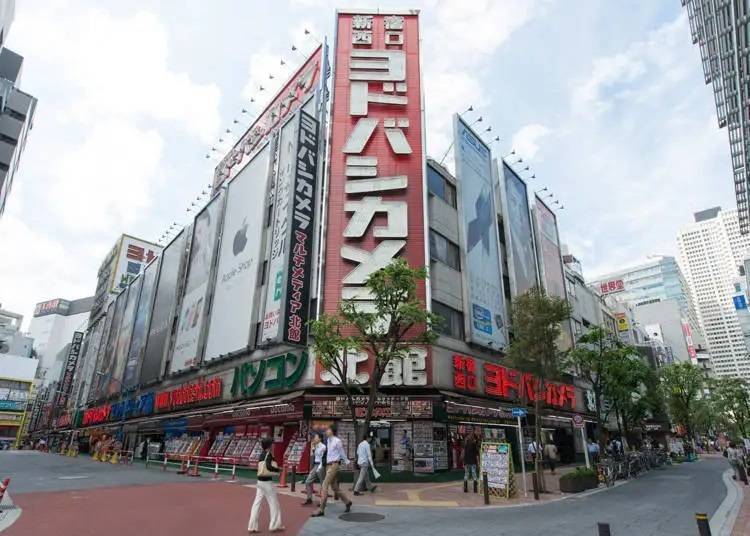
Yodobashi Camera, a renowned Japanese electronics retailer, has outlets on both sides of Shinjuku. The primary location, the West Exit Main Store, is segmented by product types. Tourist favorites here encompass the Multimedia Zone, Camera Comprehensive Zone, Travel Zone, Gachapon Zone, and Collectibles & Toys Zone. Meanwhile, the Shinjuku East Exit Store showcases the Watch & Gachapon Zone and Multimedia Zone.
For first-time visitors, the Multimedia Zone at the West Exit is a great starting point, featuring popular items like rice cookers, beauty gadgets, and cosmetics. With its North, South, and East buildings, you can indulge in hours of exploration.
Yodobashi Camera facilitates duty-free shopping, and assistance is available in both English and Chinese. Its location on Shinjuku's West Exit Electronics Street also provides the convenience of price comparison.
- <@Yodobashi Camera Shinjuku Nishiguchi Main Brancha=spot:lj0003038@>
4. Discover Japanese Brands and One of the Best Spots for Souvenirs: Keio Department Store
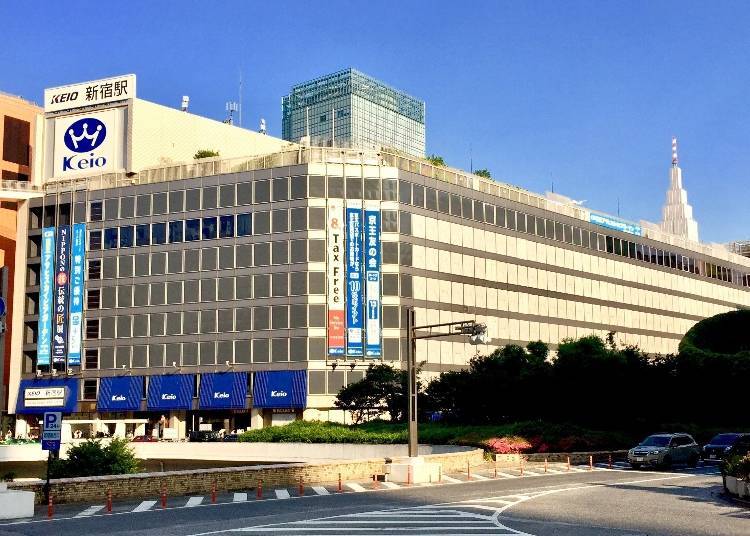
Keio Department Store, located in Shinjuku's west side, is a long-established department store adjacent to the Keio Railway Station. It showcases numerous Japanese brands, including prestigious names like Shiseido and DHC. On the fifth floor, you can find the stationery store Itoya, while the sixth floor features brand stores specializing in tea utensils, kitchen knives, and traditional Japanese knives. The store is a treasure trove of unique Japanese products.
The seventh floor often hosts themed events, like exhibitions featuring products from Okinawa or Hokkaido. It's highly recommended to explore these events when they're happening. The MB (Main Building) and B1 levels are especially delightful for foodies and souvenir hunters, offering an array of Tokyo's most talked-about souvenirs, including cakes from Bunmeido, sweet confections from Ogura Sanso, delicate rolled wafers from YOKU MOKU, and creamy cheese butter cookies from NY Perfect Cheese.
To prevent your wallet from getting too light, we also have some Keio Department Store coupons for you! Enjoy a 5% discount on purchases over 3,000 yen (tax not included) with the coupons. Additionally, if your purchase exceeds 5,000 yen (tax not included), you can go to the 2nd-floor service counter for a tax refund.
- Address: 1-1-4 Nishi-Shinjuku, Shinjuku-ku, Tokyo 160-8321
Hours: 10 AM - 8 PM, B1-2F: 10 AM - 8:30 PM (Closes at 8 PM on Sundays and national holidays), 8F restaurant hours vary by store.
Official website
5. A Gathering of Japan's Finest Specialty Brands for Amazing Shopping: Shinjuku Takashimaya TIMES SQUARE
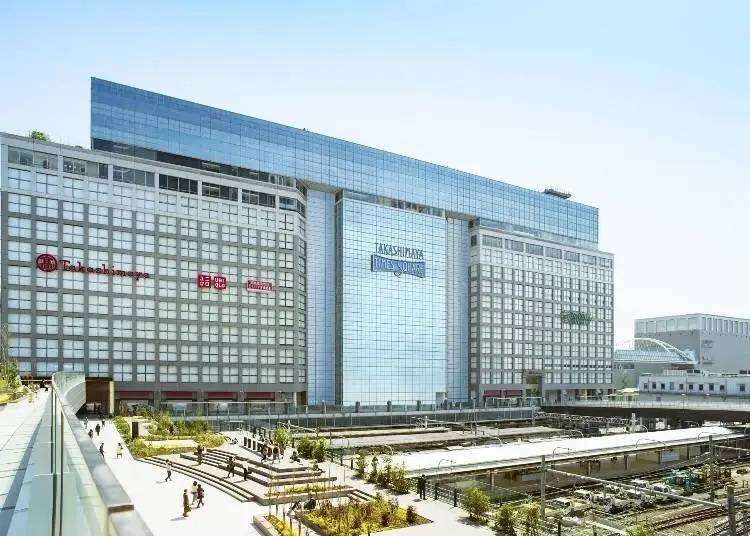
Shinjuku's Takashimaya Department Store is situated within the shopping complex known as TAKASHIMAYA TIMES SQUARE. It's just a 2-minute walk from Shinjuku Station's New South Exit ticket gates. This impressive building has a total of 14 floors, with various attractions on each.
For instance, UNIQLO on the 12th floor, Disney stores on the 9th floor, including Sanrio's shops like Three Fountains, and Japan's children's clothing brand MIKI HOUSE are all very popular with tourists. Additionally, you can find international luxury brands like HERMÈS, GUCCI, CHANEL, Louis Vuitton, Issey Miyake's BAO BAO, and many more.
Parts of floors 2 through 8 are dedicated to Hands, a haven for creative and unique merchandise. You can find a wide array of innovative goods all in one place.
The 11th floor is where you'll find the duty-free counter. When your same-day purchases exceed 5,000 yen (tax not included), you can come to this counter to process your tax refund (a handling fee will be deducted, and the refund conditions may vary depending on the item). Additionally, Takashimaya offers a Hello Kitty 5% discount card exclusively for international customers. Spend over 3,000 yen, and you can enjoy a 5% discount (some stores may not apply). This card can be obtained at the 11th-floor duty-free counter as well.
- Address: 5-24-2 Sendagaya, Shibuya-ku, Tokyo 151-8580
Hours: 10:30 AM - 7:30 PM (some shops have different opening hours); Food court hours: 11 AM - 11 PM
Official website
Recommended shops in Shinjuku Takashimaya
6. Step into the Luxury Department Store: Isetan Shinjuku for Premium Souvenirs
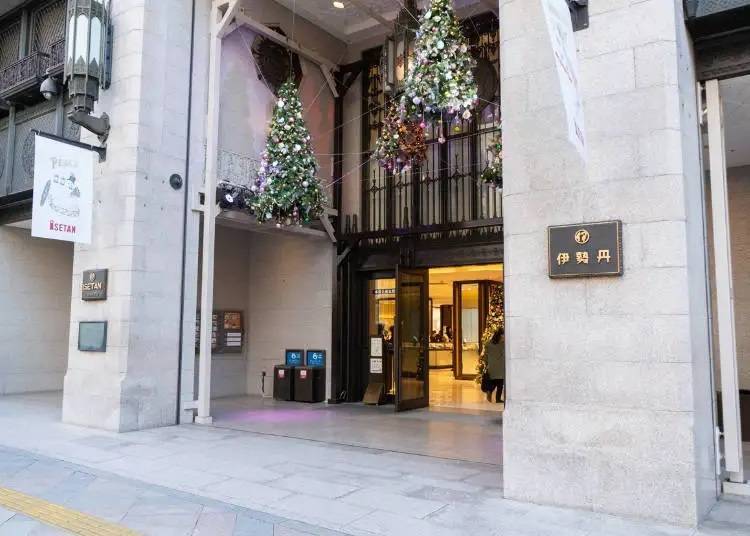
Isetan is a department store located in Shinjuku Sanchome that opened in 1933. It has an iconic and opulent exterior, making it one of Tokyo's historic buildings. The main building of Isetan Shinjuku spans from the B2 to 7F and the rooftop garden on the RF floor. It houses renowned international luxury brands such as Chanel, Bulgari, Prada, and more, creating a luxurious and sophisticated atmosphere that sets it apart from typical department stores.
The basement levels offer a wide variety of gourmet food and souvenirs, with various brands offering delectable treats, including Bunmeido honey cakes and the traditional Fukuoka confectionery Suzukake. Each item is of high quality and exquisitely presented, making them perfect for gift-giving.
Before starting your shopping journey, make sure to visit the duty-free counter on the 6th floor of the main building. There, you can show your passport and receive a GUEST CARD, which provides a 5% discount on single purchases exceeding 3,000 yen (some items excluded). If your same-day purchases exceed 5,000 yen (tax not included), you can also return to process your tax refund (a handling fee will be deducted, and the refund conditions may vary depending on the item).
- Address: 3-14-1 Shinjuku, Shinjuku-ku, Tokyo, Japan 160-0022
Hours: 10 AM - 8 PM; Honkan 7F Food Court Hours: 11 AM - 10 PM
Official website
7. Budget Travelers Won't Want to Leave Shinjuku LUMINE 1, LUMINE 2, and LUMINE EST
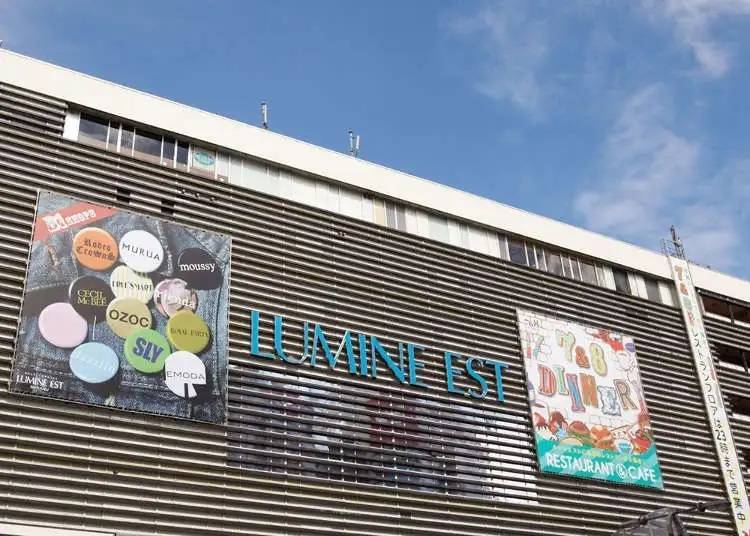
LUMINE is a Japanese department store brand with young women as its primary clientele. In the Shinjuku area, you'll find LUMINE 1, LUMINE 2, and LUMINE EST. Close to JR Shinjuku Station's south exit, LUMINE 1 boasts options like Sarutahiko Coffee, the citrusy ramen of AFURI, and Japanese fashion brands like URBAN RESEARCH DOORS and BLACK BY MOUSSY.
Meanwhile, LUMINE 2 features the New York-based fashion label kate spade new york, popular Japanese loungewear from gelato pique, fashion brands like SNIDEL, and household goods from MUJI, among others.
Directly connected to JR Shinjuku East Exit, LUMINE EST spans from B2 to 8F with over 270 stores. You'll find beloved Japanese fashion brands like SLY, MOUSSY, LOWRYS FARM, KBF, JEANASIS, and affordable lifestyle goods at 3 COINS. For those looking for treats, LUMINE EST has tourist-favorite layer cake HARBS, premium beef tongue specialty Rikyu, and Japan's must-buy souvenir, TOKYO MILK CHEESE FACTORY.
If you spend 5,000 yen or more (before tax) in any of the three LUMINE locations, you can apply for a tax refund. The refund counters are situated on the 5th and 2nd floors of LUMINE 1 and LUMINE 2, while LUMINE EST has its tax refund counter on the 6th floor.
- Address: 3-38-1 Shinjuku, Shinjuku-ku, Tokyo 160-0022
Hours: Weekdays 11 AM - 9 PM, Weekends and national holidays 10:30 AM - 9 PM; Restaurants: 11 AM - 10 PM
Official website
Recommended shops in LUMINE EST Shinjuku
- Address: 1-1-5 Nishi-Shinjuku, Shinjuku-ku, Tokyo 160-0023
Hours: 11 AM - 9 PM; Restaurants: 11 AM - 10 PM
Official website
Recommended shops in LUMINE Shinjuku
8. Pre and Post-Ride Dining and Shopping Hotspot: NEWoMan Shinjuku
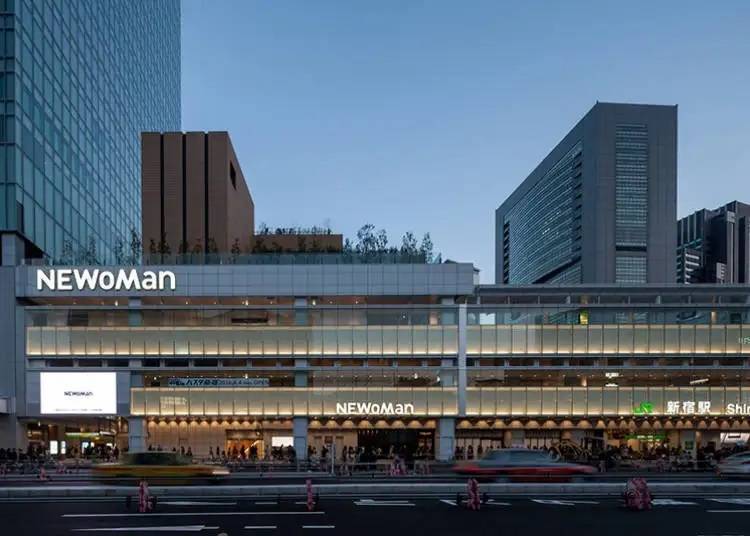
NEWoMan Shinjuku is conveniently located adjacent to JR Shinjuku Station's New South Exit ticket gates and the highway bus terminal BUSTA Shinjuku. It's a bustling hub with shops both inside and outside the station.
Here, you'll find a wide variety of products, including clothing, cosmetics, shoes, bags, local souvenirs, cafes, and eateries. International brands like CONVERSE and Chanel are available, as well as Japanese brands with tax-free shopping options. However, what delights many tourists the most is BLUE BOTTLE COFFEE on the ground floor.
For tax refunds, just make a purchase of 5,000 yen or more (tax not included) within a single day, and you can process your refund at the 4th-floor tax refund counter.
- Address: 4-1-6 Shinjuku, Shinjuku-ku, Tokyo 160-0022
Hours: Monday - Saturday 11 AM - 8:30 PM, Sunday and national holidays 11 AM - 8 PM
Store hours in the station:
FOOD: Monday - Saturday 8 AM - 9 PM, Sunday and national holidays 8 AM - 8:30 PM
SWEET: Monday - Saturday 9 AM - 9 PM, Sunday and national holidays 9 AM - 8:30 PM
Business hours may vary by store; please refer to the website for further details.
Official website
9. Get the Best Deals with Coupons at the Popular Matsumoto Kiyoshi Drugstore
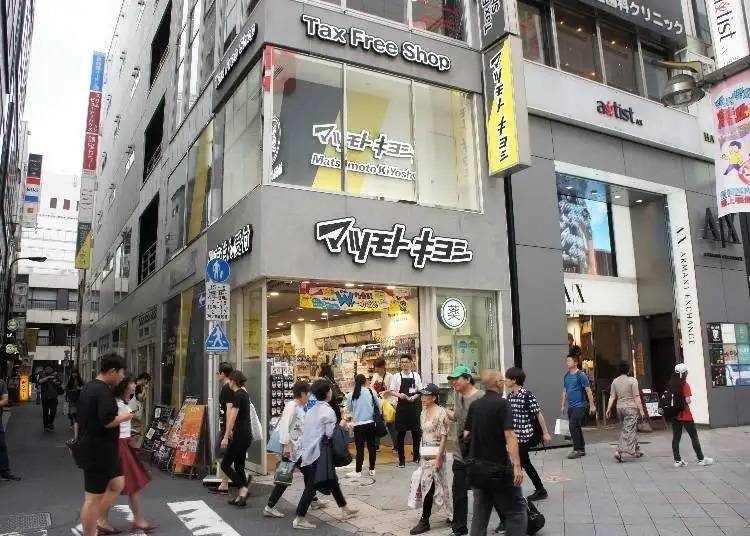
Matsumoto Kiyoshi drugstore boasts an impressive presence in Shinjuku, with a total of nine stores scattered throughout the district. You'll find them in West Shinjuku, Shinjuku West Exit, South Exit, East Exit, Kabukicho, and Shinjuku Sanchome, making it easy to shop wherever you go.
Most stores typically operate from 10 AM to 9 PM, but some offer extended hours. The Shinjuku Sanchome and West Shinjuku 1-chome stores open at 9 AM, while the West Shinjuku Metropia store opens at 7:30 AM. Additionally, some branches stay open until 10 PM, including the Shinjuku, West Shinjuku 1-chome, Shinjuku Sanchome Part 2, and West Shinjuku Metropia stores.
At Matsumoto Kiyoshi, you can find a wide array of Japanese medicine, health supplements, cosmetics, snacks, masks, and more. The stores are well-lit and easy to navigate, with multilingual product descriptions and often have staff members who can communicate in Chinese and English. They also offer tax-free shopping, and if you have coupons, you can enjoy additional discounts ranging from 7% to 3%. Don't forget to present your coupons at the checkout!
- Address: Hulic Building Shinjuku 3-chome, 3 Chome-17-2, Shinjuku-ku, Tokyo 160-0022
Hours: 10 AM - 10 PM
Shop list (Official website)
10. The Self-Proclaimed Cheapest Drugstore in Japan: Daikoku Drug
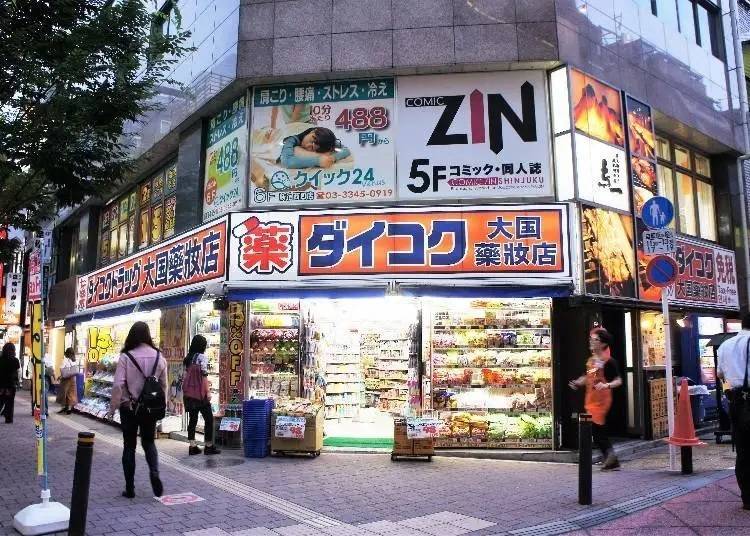
Daikoku Drug is a chain of drugstores primarily located in major Japanese cities and tourist areas. In Shinjuku, they have five branches, including West Shinjuku 1-chome, West Shinjuku, Kabukicho 2-chome, Shinjuku Sanchome, and Shinjuku 5-chome. Among these, the West Shinjuku and Kabukicho 1-chome branches are the most convenient for tourists.
Daikoku Drug prides itself on its affordable prices. It's known as the cheapest drugstore in all of Japan and is a must-visit shopping destination for shopping tourists. All Daikoku Drug stores in Shinjuku provide tax-free shopping services.
- Address: 1-12-11 Nishi-Shinjuku, Shinjuku-ku, Tokyo 160-0023
Hours: Weekdays 8:05 AM - 10:50 PM, Weekends and national holidays 9:05 AM - 9:50 PM
Official website
Shop list
Shinjuku's Culinary Delights: 5 Recommended Dining Spots
1. A Shinjuku Must-Try: The Elusive Yakiniku Gem - Rokkasen
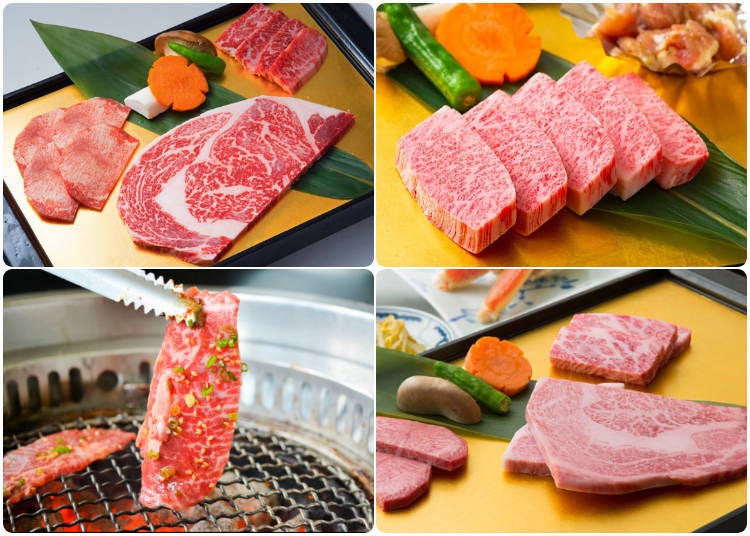
Rokkasen is a renowned yakiniku (Japanese barbecue) restaurant that specializes in carefully selected high-quality meats. It's a rare gem in Shinjuku, with two branches in the area, known as West Exit No. 1 and West Exit No. 2. They offer both set menus and all-you-can-eat options, with their all-you-can-eat yakiniku and shabu-shabu being highly popular among tourists. The menu features premium Japanese beef, including Kobe beef and Matsusaka beef, along with a variety of seafood delicacies like lobster and crab. While it may not be the most budget-friendly option, it is considered by many as the number one yakiniku restaurant in Japan. Due to its popularity, it's best to make an online reservation in advance to avoid disappointment.
- Address: Nishi-Shinjuku K-1 Building B1, Nishi-Shinjuku 7-2-6, Shinjuku-ku, Tokyo 160-0023
Hours: 11 AM - 11 PM (last order 10:30 PM)
2. Indulge in a Variety of All-You-Can-Eat High-Quality Sushi at Kizuna Sushi
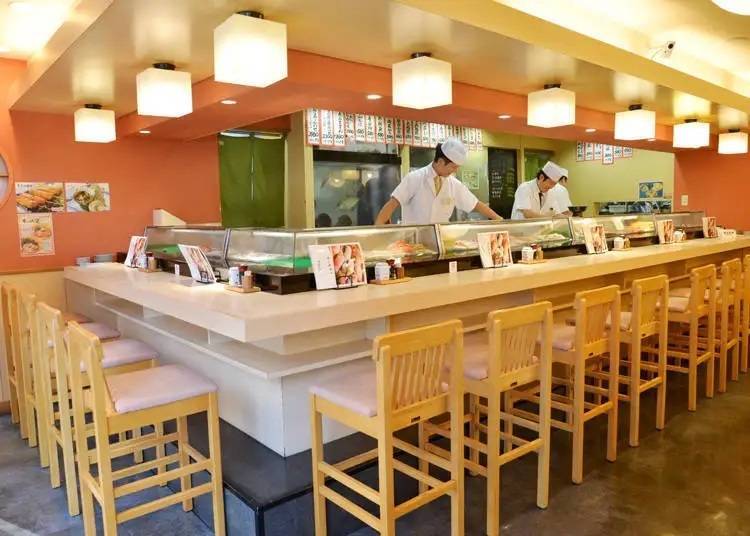
Located on the main street of Kabukicho in Shinjuku, Kizuna Sushi Shinjuku Kabukicho Store offers all-you-can-eat sushi, including 87 varieties of sushi, salads, grilled dishes, fried items, and over 100 other specialty dishes. It's perfect for those who want to indulge in a sushi feast.
- Address: B1/1F Monami Building, 1-18-8 Kabukicho, Shinjuku-ku, Tokyo
Hours: 11 AM - 10 PM
3. A Must-Visit: Hakata-Style Tonkotsu Ramen at Ichiran Ramen
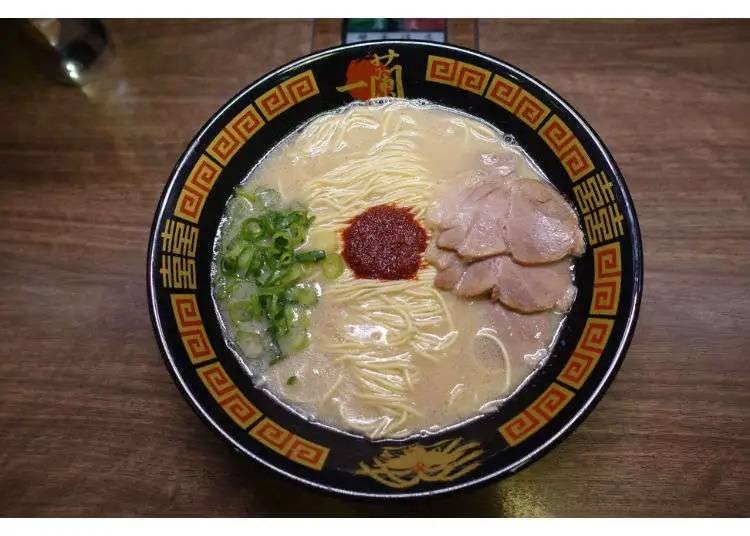
One of the most famous names when it comes to Hakata-style tonkotsu ramen is Ichiran Ramen. In the Shinjuku area, you'll find three Ichiran Ramen branches: Shinjuku Main Store, Shinjuku Central East Exit Store, and Shinjuku Kabukicho Store. All are conveniently located near the train station, making it easy for tourists to drop by for a meal. Notably, the Kabukicho branch is open 24 hours.
The seating arrangement in these stores is unique, featuring individual booths that allow you to fully concentrate on the flavors. You can also customize your ramen experience, adjusting the noodle firmness, broth richness, and toppings to your liking. What's particularly convenient is that you don't need much interaction with the staff during your meal, and the menu is available in multiple languages, making it accessible to international visitors.
- Address: B1F Peace Building, 3-34-11 Shinjuku, Shinjuku-ku, Tokyo 160-0022, Japan
Hours: 9 AM - 6 AM the next day
4. Stepping Back in Time - Nostalgic Izakaya Alley 'Omoide Yokocho'
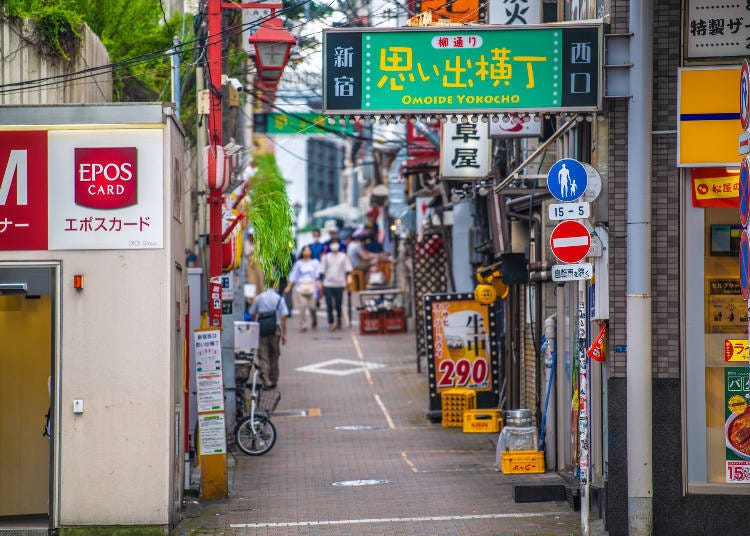
Just a 3-minute walk from Shinjuku West Exit, you'll find Omoide Yokocho. Officially known as 'Memory Lane,' this is more commonly referred to as 'Piss Alley,' and offers a classic dining and drinking experience. This narrow alleyway is lined with traditional izakayas (Japanese pubs), each with a cozy atmosphere. The establishments are quite small, typically seating fewer than 10 patrons, but when night falls, the warm glow of lanterns, the aroma of grilled food, and the gentle haze in the air create an ambiance that's reminiscent of old movies. The prices are also quite budget-friendly, making it an excellent choice for travelers who want to experience Japan's local izakaya culture.
Many of the pubs also serve meals during the day, offering dishes like set meals, soba noodles, and ramen. Stopping by for a meal during daylight hours can be a unique and enjoyable experience.
5. A Night of Revelry! Exploring the Nightlife of Japanese Izakayas on Shinjuku Golden Gai
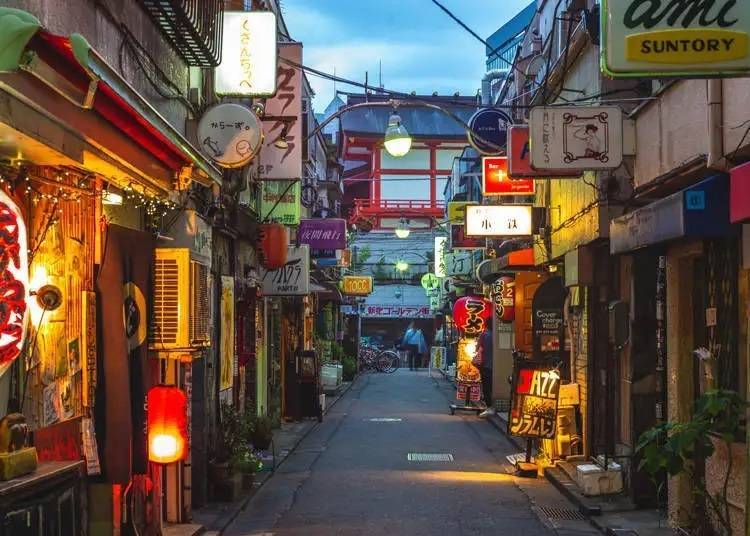
Located in Kabukicho 1-chome, Golden Gai is a maze-like bar street featuring around 280 bars. These bars range from classic Japanese-style izakayas to trendy, nostalgic artsy bars, each with its own unique charm. It's not just Japanese office workers and OLs (office ladies) who come here for a drink; this place is also highly popular among European and American tourists. As a result, many bar owners can converse in English. If you're looking to experience Japanese bar nightlife, interact with locals or fellow international travelers, we highly recommend stopping by for a drink.
Top 5 Must-Visit Attractions in Shinjuku
1. Shinjuku Gyoen: An Oasis of Seasonal Beauty and Natural Tranquility
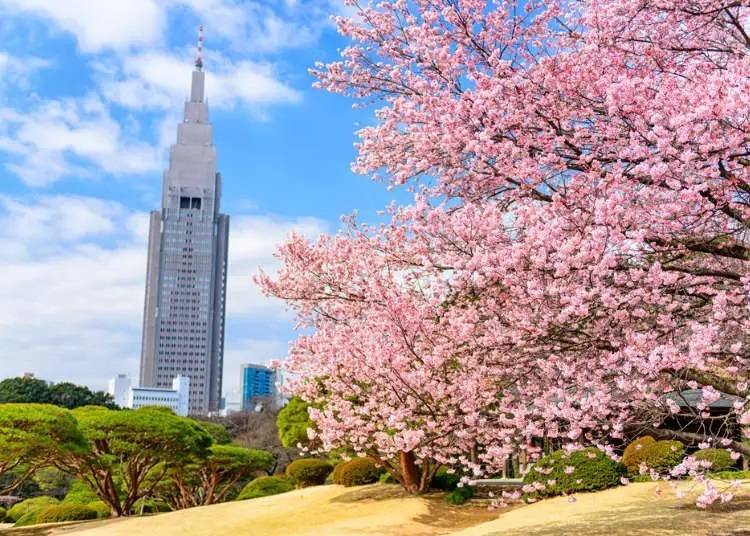
Shinjuku Gyoen is a sprawling 58.3-hectare garden that encompasses various styles, including Japanese, landscape, Western formal, and greenhouse gardens. It's a perfect place for a leisurely stroll or a relaxing picnic on the expansive lawns. What's particularly enchanting is that each season brings a different kind of beauty, making it a popular spot for cherry blossom viewing in the spring. You can easily reach it with a 5-minute walk from Tokyo Metro's Shinjuku Gyoenmae station or a 10-minute walk from JR Shinjuku Station's southeast exit.
2. Guarding Beauty Amidst Shinjuku's Urban Landscape: Hanazono Shrine
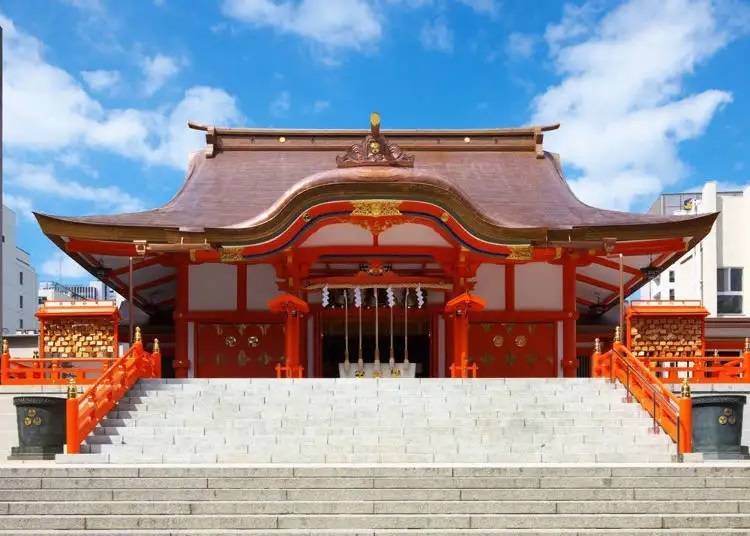
Hanazono Shrine is nestled in the bustling vicinity of Kabukicho and Shinjuku Sanchome. This ancient shrine dates back to the Edo period and, while it may not be large in size, it offers a tranquil, dignified atmosphere amidst the towering buildings and businesses of Shinjuku. It's a common stop for many tourists seeking to pay their respects.
The shrine hosts events and festivals throughout the year, with the liveliest being the Torinoichi festival held in November. During this festival, you'll find vendors selling decorative kumade ("rakes of good fortune") for business prosperity within the shrine and along the nearby streets. There are also roadside stalls offering Japanese street food treats like takoyaki and taiyaki. It's a great place to experience a taste of traditional Japanese culture.
3. Tokyo Metropolitan Government Building: Check Out the Free Observation Decks
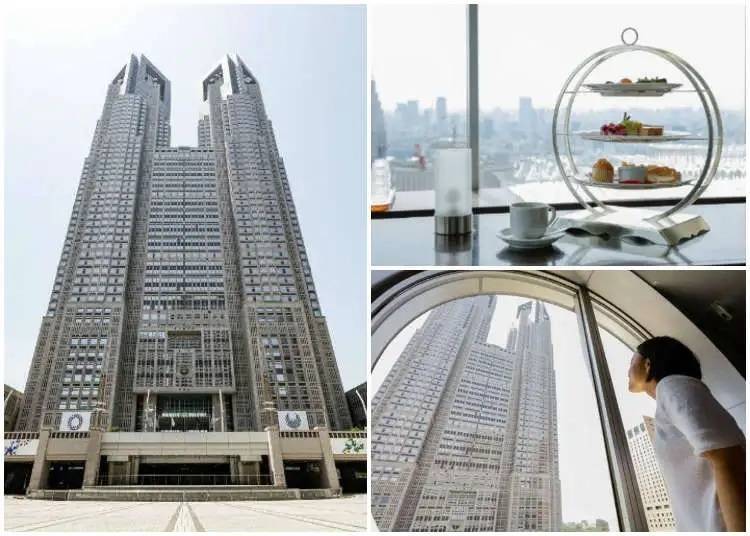
The Tokyo Metropolitan Government Building is located approximately a 10-minute walk from JR Shinjuku Station's west exit. The complex consists of two skyscrapers, both standing 243 meters tall. On the 45th floor of both towers, you'll find a North Observation Deck and a South Observation Deck, which are open to the general public, allowing them to appreciate the vibrancy of Shinjuku and Tokyo. What makes this experience even more special is that the observation decks stay open until 10 PM, and seeing neon-lit Shinjuku at night is a sight to behold. It's also worth noting that entry is free.
(*Please note that as of September 2023, the North Observation Deck is temporarily closed.)
- Address: 2-8-1 Nishi-Shinjuku, Shinjuku-ku, Tokyo 163-8001
Admission: Free
Open: South Observatory 9:30 AM - 10 PM (last entry 9:30 PM)
Closed: 1st and 3rd Tuesdays (the following day if it is a national holiday), Year-end and New Year holidays (12/29-31, 1/2, 1/3)
*May be temporarily closed due to inclement weather or other factors. For more information, please refer to Torii Hall Observatory Twitter
4. Shinjuku's Trendy Entertainment Destination: Tokyu Kabukicho TOWER
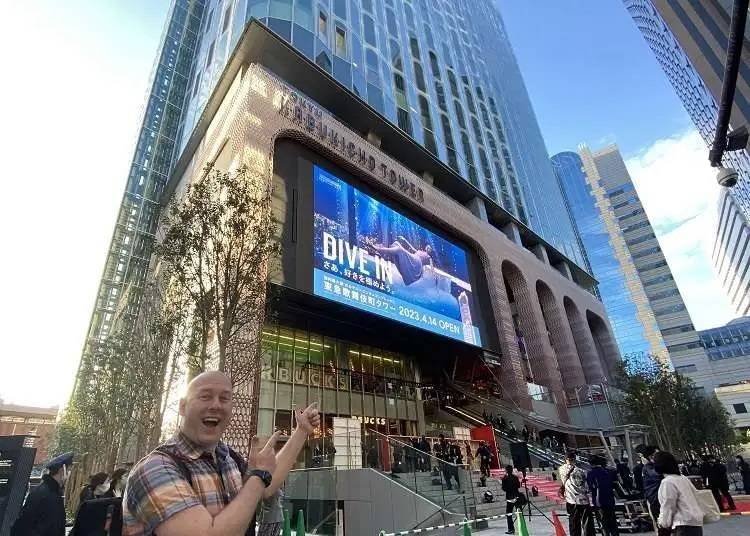
Opened in April 2023, Tokyu Kabukicho TOWER is a 48-story skyscraper that has brought together a wide array of entertainment facilities. Inside, you'll find a hotel, a cinema, theaters, a Live House for music performances, restaurants, and even an amusement park. It's the latest and most talked-about attraction in Shinjuku, and its interior design, featuring futuristic neon visuals, resonates with the vibrant atmosphere of Kabukicho where it's located. If you haven't visited yet, make it a point to explore this exciting destination. For more information, you can click on the article below for a closer look!
- Address: 1-29-1 Kabukicho, Shinjuku-ku, Tokyo 160-0021
Hours: Vary by facility
Official website
5. Giant Monsters in Kabukicho? Explore Shinjuku's Iconic Shinjuku Godzilla
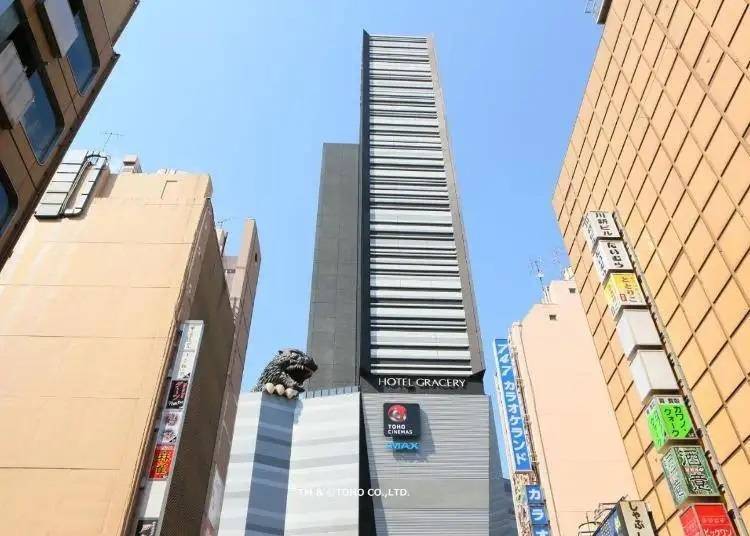
When you look towards Kabukicho from the Don Quijote Kabukicho Store, you'll spot a menacing, jet-black monster climbing the side of a building. Many tourists pause to take photos, and some even make a special trip to Shinjuku just to see this Godzilla. Inside this building, you'll find the Gracery Shinjuku Hotel, located on floors 8 through 30. This unique hotel provides an up-close view of the life-sized Godzilla model, earning it the nickname "Godzilla Hotel." It's become a must-visit spot for many tourists exploring Shinjuku.
Make the Most of Shinjuku's Transportation Hub: Recommended Bus Trips Departing from Shinjuku
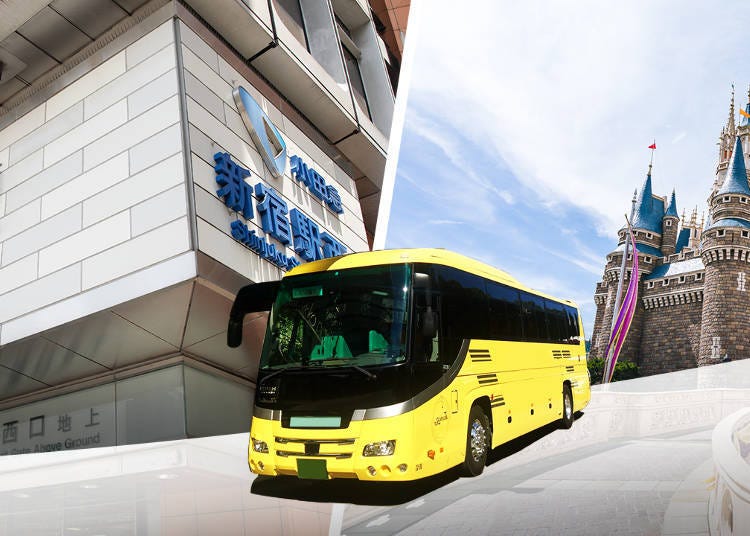
One of the significant advantages of Shinjuku is its exceptional transportation accessibility. Visitors can easily utilize various modes of transportation to explore different parts of Japan. This convenience is especially beneficial for getting popular destinations like Disneyland, Mount Fuji, Hakone, Karuizawa, Nikko, and more. You can conveniently catch a direct bus from Shinjuku to these locations, eliminating the hassle of navigating train routes or transfers. It's not only easy, but also a time-saving and stress-free option. We recommend booking your bus tickets online, confirming the departure point, date, and time, and you'll be ready to embark on your journey.
-
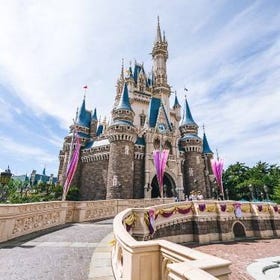 Tokyo Shinjuku - Tokyo Disneyland/DisneySea Shuttle Bus
Tokyo Shinjuku - Tokyo Disneyland/DisneySea Shuttle Bus
Click to Reserve
Photo: Klook -
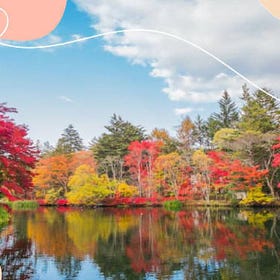 Limited-time 20% Off Karuizawa Day Tour: Shiraito Falls, Kumoba Pond, Old Karuizawa Ginza Street & Karuizawa Prince Shopping Plaza | Shinjuku Departure
Limited-time 20% Off Karuizawa Day Tour: Shiraito Falls, Kumoba Pond, Old Karuizawa Ginza Street & Karuizawa Prince Shopping Plaza | Shinjuku Departure
Click to Reserve
Photo: kkday -
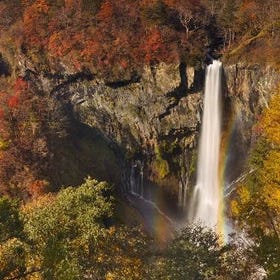 Nikko World Heritage Day Tour from Tokyo
Nikko World Heritage Day Tour from Tokyo
Click to Reserve
Photo: Klook -
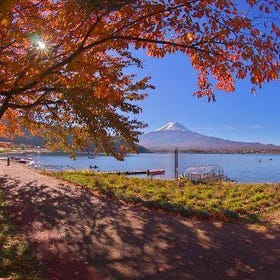 Mt Fuji Classic Route Day Tour from Tokyo (Chinese/English Guide)
Mt Fuji Classic Route Day Tour from Tokyo (Chinese/English Guide)
Click to Reserve
Photo: Klook -
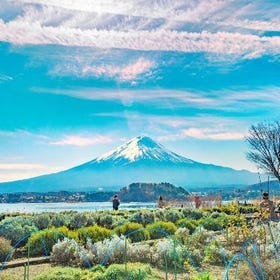 Oishi Park x Oshinohakkai x Koedo Kawagoe Day tour from Shinjuku
Oishi Park x Oshinohakkai x Koedo Kawagoe Day tour from Shinjuku
Click to Reserve
Photo: Klook
Annual Must-Attend Events in the Shinjuku Area
- Late March - Late April: Shinjuku Gyoen - Cherry Blossom Season & Evening Cherry Blossom Illumination
- End of June - Mid-July: Department stores around Shinjuku Station - Summer Sale (Sale dates vary by store)
- End of July: Shinjuku Station and main roads in Kabukicho - Shinjuku Eisa Taiko Odori Festival
- September: Kumano Shrine - Annual Festival
- November: Hanazono Shrine - Hanazono Shrine Torinoichi Festival
- Mid-November - mid-February: Shinjuku commercial facilities - Winter Lighting (Lighting period varies by facility)
Full of Surprises, Shinjuku Awaits Your Exploration!
Bustling and vibrant Shinjuku offers not only a wide array of shops and department stores for all ages but also tranquil spots like shrines and gardens hidden amidst the busy streets. Whether it's your first visit or a return trip, Shinjuku never fails to surprise and delight.
Additionally, Shinjuku is a popular area for accommodations, making it convenient to rest at your hotel after a day of shopping and exploring. If you're planning a trip to Shinjuku and need some guidance, be sure to take a look at these recommendations:
You may also be interested in:
*Prices and options mentioned are subject to change.
*Unless stated otherwise, all prices include tax.
Recommended places for you
-

Ueno Zoo (Ueno Zoological Gardens)
Zoos, Aquariums & Botanical Gardens
Ueno
-

TOKYO SKYTREE®
Landmarks
Ryogoku / TOKYO SKYTREE(R)
-

Tsukiji Outer Market
Old Towns (Shitamachi)
Tsukiji
-

Shibuya Crossing
Downtown
Shibuya
-
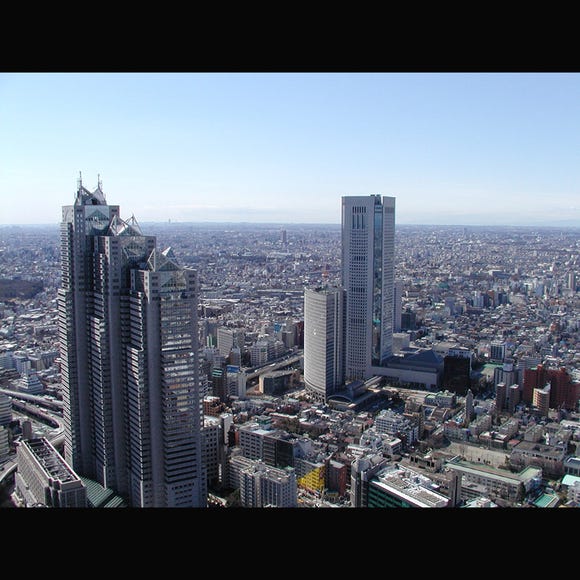
Tokyo Metropolitan Government
Landmarks
Shinjuku
-

Ameyoko Shopping Street
Old Towns (Shitamachi)
Ueno
-

'They Do What in the Toilet?!' Italians Shocked By These Japanese Beauty Quirks
by: Yuu Sato
-

Police to ticket cyclists riding on sidewalks, which amounts to almost all cyclists in Japan
-

Japanese hotel offering sports car touge tours, no Japanese-language ability required
-

Hachiji juppun mae – A Japanese phrase that even Japanese people can’t agree on the meaning of
-

This Japanese train station has its very own hot spring bathhouse, right on the platform【Photos】
-

Stay with Snorlax? Grand Hyatt Tokyo's Summer Pokémon Resort Experience Is the Ultimate Sleepover
Inspiration for Accommodations
-

Enjoy Mt. Fuji from the Comfort of Your Room! Recommended Ryokan with Mt. Fuji View
-

Stay Near the Cherry Blossoms! Hotels for Cherry Blossom Viewing in Tokyo
-

Family-Friendly Hotels with Free Shuttle to Disneyland: Convenient Access for a Magical Stay
-

Top Ranked Hakone Hotels with Mt. Fuji View: Enjoy Stunning Scenery from Your Private Space
-

Convenient Tokyo Hotels with Airport Shuttle: Ideal for Families and Heavy Luggage
-

Stunning Tokyo Tower View Hotels: Enjoy Spectacular Scenery from Your Private Space
-

Convenient Asakusa Hotels with Kitchens: Ideal for Extended Family Visits
-

Experience Luxury: Hakone's 10 Best Five-Star Accommodations
-

Enjoy Mt. Fuji Autumn Leaves! Top Hotels Near the Popular Autumn Leaves Corridor
-

Experience Hakone Fall Foliage from Your Room with Stunning Views
-

Ueno Station Area Guide: Fun Ways to Explore Tokyo's Popular Destination (Area Map & Sightseeing Tips)
-

Secrets to Shopping in Japan: Guide to Annual Sales in Japan & Where to Shop
by: Miyu Shimada
-

6 Surprisingly Cheap Things in Japan
-

Stringraphy at Studio EVE: A Striking and Unique Musical Experience
by: Holly Neslusan
-

A Collection of Food and Drinks that were Created in Ginza
-

Enjoy Tasty Sushi for Under 1,000 Yen at These 3 Sushi Shops!
- #best ramen tokyo
- #what to buy in ameyoko
- #what to bring to japan
- #new years in tokyo
- #best izakaya shinjuku
- #things to do tokyo
- #japanese nail trends
- #what to do in odaiba
- #onsen tattoo friendly tokyo
- #daiso
- #best sushi ginza
- #japanese convenience store snacks
- #best yakiniku shibuya
- #japanese fashion culture
- #best japanese soft drinks













